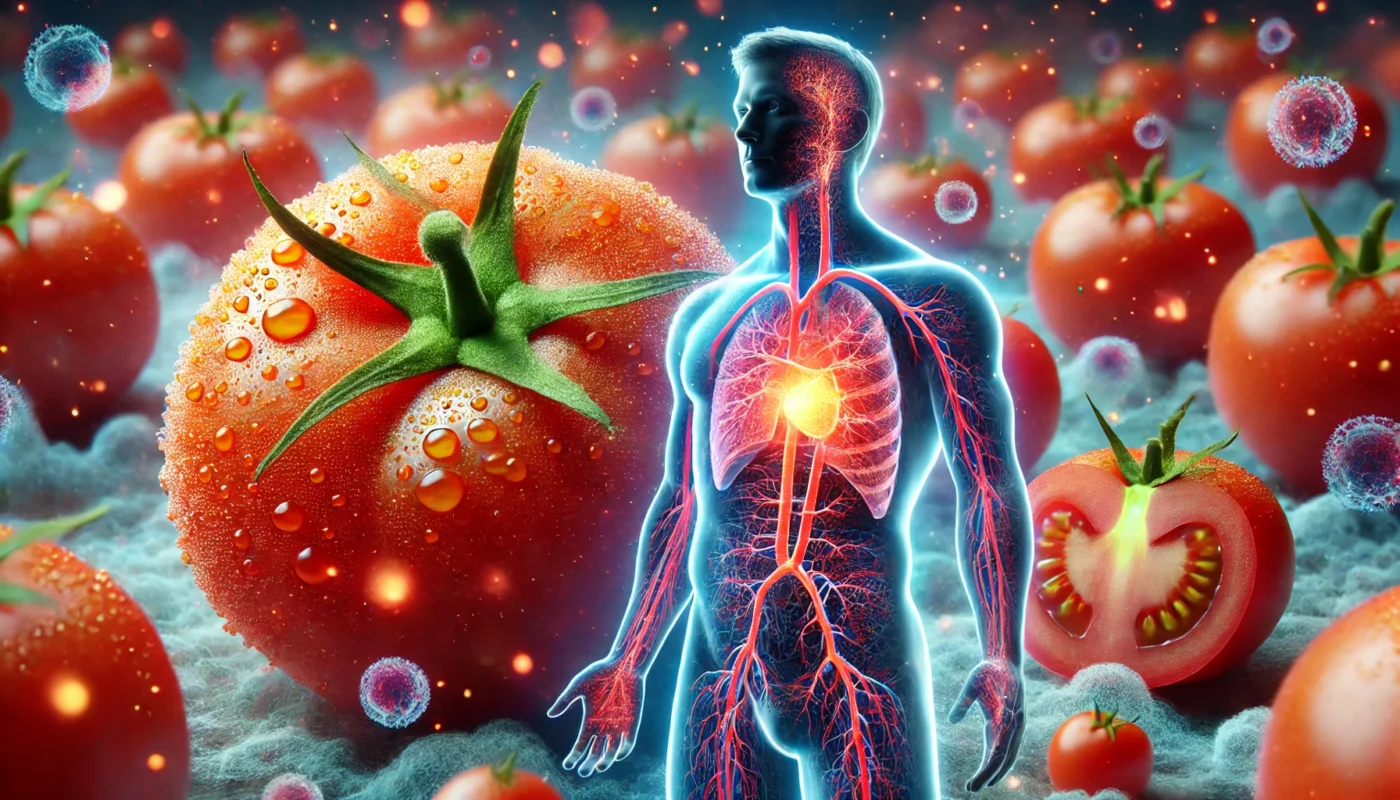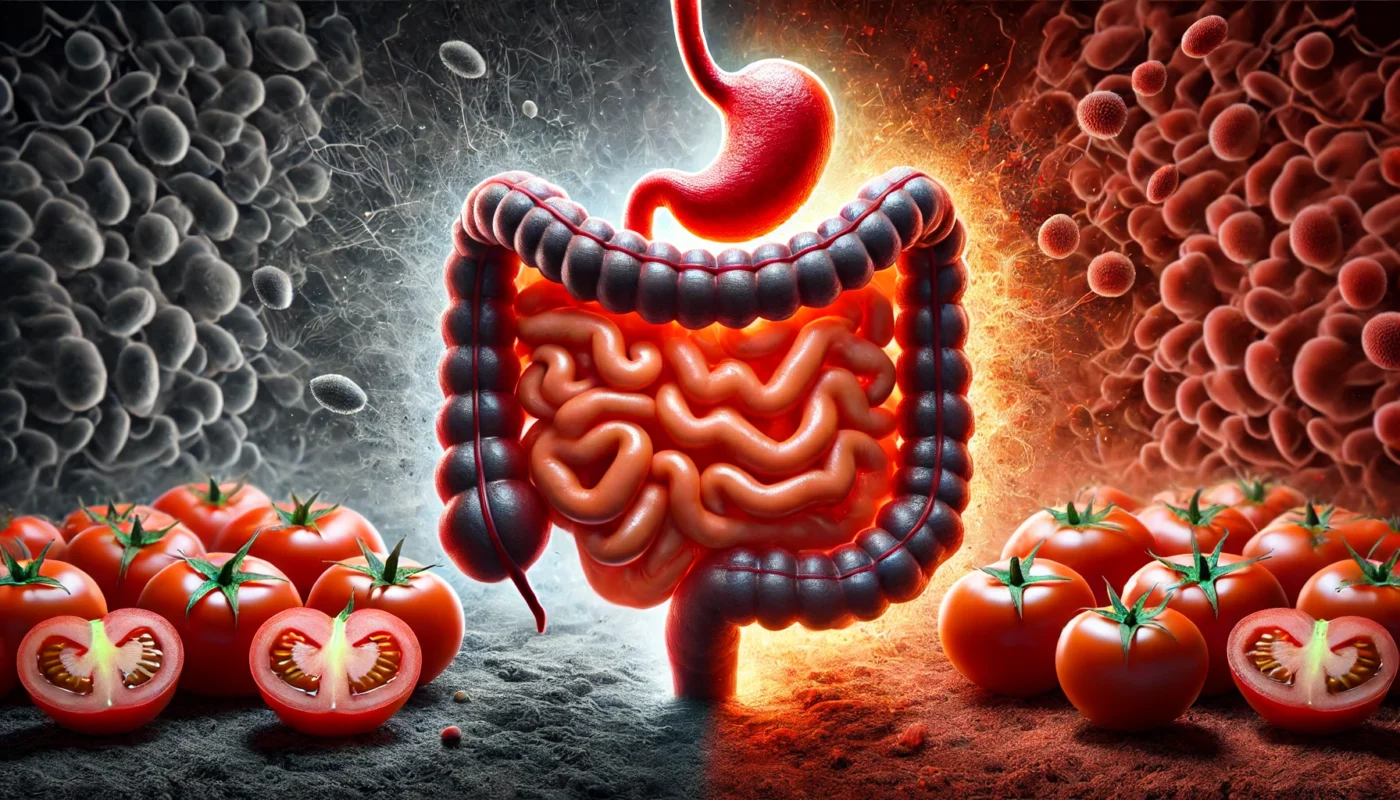In the realm of nutrition and wellness, the debate surrounding whether certain foods are inflammatory or anti-inflammatory often arises. Among these contentious foods are tomatoes and potatoes. Both are staples in many diets, yet they are frequently scrutinized for their potential inflammatory properties. So, do tomatoes and potatoes cause inflammation, or are they unfairly maligned? This article will explore the intricate relationship between these foods and inflammation, providing a comprehensive overview for those seeking clarity.
You may also like: 20 Powerful Anti-Inflammatory Foods
Are Tomatoes Inflammatory?
Tomatoes, belonging to the nightshade family, have been the subject of various studies concerning their role in inflammation. The confusion often arises from the presence of solanine, a compound found in nightshades that is sometimes linked to inflammation. To better understand the inflammatory potential of tomatoes, we need to explore different facets of their composition and their impact on health.
Tomatoes and Arthritis: A Closer Look
A common belief is that tomatoes may exacerbate arthritis symptoms. However, scientific evidence supporting this claim remains inconclusive. While some individuals with arthritis report worsened symptoms after consuming tomatoes, this is not universally experienced. These anecdotal reports have yet to be strongly supported by empirical research, leaving room for further investigation.
The variability in individual responses to tomatoes may be attributed to genetic differences or other underlying health conditions. Some researchers suggest that the body’s reaction to tomatoes might be more related to individual sensitivities rather than a universal inflammatory effect. This calls for more personalized approaches in dietary recommendations for those with arthritis.
Anti-inflammatory Properties of Tomatoes
Interestingly, tomatoes are rich in lycopene, a powerful antioxidant known for its anti-inflammatory properties. Lycopene has been shown to reduce inflammation markers in the body. Therefore, for most people, the benefits of consuming tomatoes may outweigh potential drawbacks.
In addition to lycopene, tomatoes contain other beneficial compounds like vitamin C and beta-carotene, which also contribute to their anti-inflammatory effects. These compounds can help neutralize free radicals, reducing oxidative stress and potentially lowering inflammation levels. The balance of these nutrients in tomatoes underscores their potential as a health-promoting food.
Solanine: The Controversial Compound
Solanine is often highlighted as a potential inflammatory agent in nightshades. However, the levels of solanine in tomatoes are typically low and unlikely to cause significant harm for most people. Some studies suggest that solanine’s effects might be more pronounced in those with specific allergies or sensitivities, but this is not the norm.
Understanding the role of solanine involves looking at its interaction with other dietary components and individual health factors. While it is prudent to be aware of its presence, it is equally important to recognize that the overall dietary context and individual health status play critical roles in determining its impact.
The Science Behind Inflammation
To understand the role of tomatoes in inflammation, we must first grasp what inflammation is. Inflammation is the body’s natural response to injury or illness, a defense mechanism that involves immune cells, blood vessels, and molecular mediators. This complex biological process can be categorized into different types, each with distinct implications for health.
Acute vs. Chronic Inflammation
Inflammation can be acute or chronic. Acute inflammation is short-term and beneficial, aiding in the healing process. It is characterized by redness, heat, and swelling at the site of injury, signaling the body’s attempt to repair damage. Chronic inflammation, however, can lead to various health problems, including heart disease and arthritis.
The persistence of chronic inflammation is often linked to lifestyle factors such as diet, stress, and exposure to environmental toxins. Understanding how these factors contribute to inflammation is crucial for developing effective dietary strategies to manage or prevent chronic inflammatory conditions.

The Role of Diet in Inflammation
The role of diet in managing chronic inflammation is critical, which is why the potential inflammatory nature of tomatoes is scrutinized. Foods can either exacerbate or alleviate inflammation, depending on their nutrient composition. Anti-inflammatory diets typically emphasize whole, unprocessed foods, rich in antioxidants, and healthy fats.
Research has shown that diets high in processed foods, sugars, and unhealthy fats can promote chronic inflammation. Conversely, incorporating anti-inflammatory foods like fruits, vegetables, and omega-3 fatty acids can help reduce inflammation levels. This highlights the importance of dietary choices in maintaining overall health and preventing disease.
Molecular Mediators of Inflammation
Molecular mediators, such as cytokines and prostaglandins, play a significant role in the inflammatory process. These molecules are released by immune cells in response to injury or infection, orchestrating the body’s defense mechanisms. The balance and regulation of these mediators are crucial for preventing excessive or prolonged inflammation.
Certain dietary components, like antioxidants and polyphenols, can influence the production and activity of these molecular mediators. By modulating their effects, these compounds can help maintain a healthy inflammatory response, highlighting the potential of diet as a therapeutic tool in managing inflammation.
Potatoes and Inflammation: Are They Related?
Potatoes, another nightshade, contain solanine, similar to tomatoes. The question arises: are potatoes an inflammatory food? To address this, we must examine their nutritional profile and how they fit into a balanced diet.
Nutritional Profile of Potatoes
Potatoes are a rich source of vitamins and minerals, including potassium and vitamin C. They are also high in carbohydrates, which are necessary for energy production. This nutrient-dense profile makes them a valuable component of many diets, providing essential nutrients that support various bodily functions.
In addition to their vitamin and mineral content, potatoes contain dietary fiber, which aids in digestion and supports gut health. The fiber in potatoes can also help regulate blood sugar levels, contributing to their role in a balanced diet. Understanding the nutritional benefits of potatoes is essential for assessing their overall impact on health.
Do Potatoes Cause Inflammation?
Research on potatoes and inflammation is less abundant than for tomatoes. However, potatoes are generally considered safe for most people. Like tomatoes, individuals with specific sensitivities may experience adverse reactions. These reactions are often related to individual health conditions rather than an inherent inflammatory property of potatoes.
It’s important to consider how potatoes are prepared and consumed, as cooking methods can influence their nutritional value and potential inflammatory effects. For instance, frying potatoes in unhealthy oils can negate their health benefits, whereas baking or boiling may retain their nutritional integrity. This underscores the importance of preparation methods in determining the health impact of potatoes.
Solanine in Potatoes: Impact and Implications
Solanine, present in both potatoes and tomatoes, is often a focal point in discussions about inflammation. While potatoes contain solanine, the levels are generally low and considered safe for consumption. In rare cases, individuals with sensitivities may experience mild symptoms, prompting the need for more personalized dietary approaches.
Understanding the solanine content in potatoes involves recognizing how it interacts with other dietary factors and individual health conditions. This compound’s potential effects are best assessed within the context of an individual’s overall diet and health status, emphasizing the need for a holistic approach to nutrition.
Practical Advice for Managing Inflammation
For those concerned about inflammation, dietary adjustments can be beneficial. Here are some strategies to consider, offering practical guidance for managing inflammation through informed dietary choices.

Monitoring Dietary Triggers
Keep a food diary to identify potential triggers. If you suspect tomatoes or potatoes might exacerbate your symptoms, try eliminating them temporarily to see if there’s an improvement. This process of elimination can help pinpoint specific dietary culprits and guide personalized dietary modifications.
Regularly reviewing and updating your food diary is crucial for accurately identifying patterns and triggers. Over time, this practice can provide valuable insights into how different foods affect your health, enabling you to make more informed dietary choices. Consulting with a nutritionist can further enhance this process, offering professional guidance tailored to your needs.
Emphasizing Anti-inflammatory Foods
Incorporate foods known for their anti-inflammatory properties, such as fatty fish, leafy greens, and nuts. These foods can help mitigate the effects of any inflammatory triggers. Including a variety of anti-inflammatory foods in your diet can enhance overall health and support the body’s natural healing processes.
Exploring diverse culinary options can make incorporating anti-inflammatory foods enjoyable and sustainable. Experimenting with different recipes and cooking methods can help maintain a balanced and satisfying diet. Additionally, staying informed about the latest nutritional research can inspire new dietary choices and reinforce the commitment to a health-promoting lifestyle.
Consulting a Healthcare Professional
If you have arthritis or another inflammatory condition, it’s wise to discuss dietary concerns with a healthcare professional. They can provide personalized advice based on your health status and needs. Consulting with a healthcare provider ensures that your dietary adjustments align with your overall health goals and medical requirements.
Regular check-ins with your healthcare professional can help monitor progress and make necessary adjustments to your dietary plan. This collaborative approach empowers you to take charge of your health, combining expert guidance with personal insights to optimize your dietary strategy. Engaging in open and ongoing communication with your healthcare team can enhance your journey toward better health.

Conclusion: Tomatoes, Potatoes, and You
In conclusion, the relationship between tomatoes, potatoes, and inflammation is complex. While some people may experience adverse reactions, many others do not. Both tomatoes and potatoes offer nutritional benefits that can contribute to a healthy diet. The key lies in understanding your body’s unique responses and making informed dietary choices.
Understanding your body’s unique responses is crucial. By staying informed and consulting with healthcare professionals, you can make dietary choices that support your health and wellbeing. This proactive approach empowers you to navigate the complexities of dietary inflammation with confidence and clarity.
For those navigating the complexities of dietary inflammation, remember that knowledge is power. Equip yourself with the information needed to make informed decisions, and take proactive steps toward a healthier lifestyle. Embracing a balanced approach to nutrition, considering both scientific evidence and personal experience, can lead to a more fulfilling and health-conscious life.
Further Reading:
Do Tomatoes Cause Inflammation? 9 Food Myths, Debunked
Are Tomatoes Actually Bad For Arthritis? A Doctor Weighs In
5 Arthritis Trigger Foods to Avoid
Tomatoes, Potatoes, Inflammation, Anti-inflammatory Foods, Nutrition, Health, Arthritis, Dietary Choices, Solanine, Lycopene, Chronic Inflammation, Acute Inflammation, Dietary Triggers, Nutritional Benefits, Health and Wellness
Important Note: The information contained in this article is for general informational purposes only, and should not be construed as health or medical advice, nor is it intended to diagnose, prevent, treat, or cure any disease or health condition. Before embarking on any diet, fitness regimen, or program of nutritional supplementation, it is advisable to consult your healthcare professional in order to determine its safety and probable efficacy in terms of your individual state of health.
Regarding Nutritional Supplements Or Other Non-Prescription Health Products: If any nutritional supplements or other non-prescription health products are mentioned in the foregoing article, any claims or statements made about them have not been evaluated by the U.S. Food and Drug Administration, and such nutritional supplements or other health products are not intended to diagnose, treat, cure, or prevent any disease

